Server operations
This section describes operations related to Mugnsoft components also known as Server.
Below are the three main component of a Mugnsoft infrastructure.
- MNS Webserver: The Webserver is the component that manages the whole infratrsucture and data. Components (a.k.a. Servers), Monitors, Reports, Downtimes, Users are managed through the Webserver WebUI. It bundles its own API interface that starts up at the same time as its webUI.
- MNS Monitor: A probe is the component in charge of executing the business transaction scenarii. It bundles its own API interface that starts up at the same time as its webUI.
- MNS Integrator: An Integrator is the component in charge of integrating the business transaction scenarii’s data to external products. It bundles its own API interface that starts up at the same time as its webUI.
Add a MNS server
- once logged in, click on the server icon in the top level menu

- click on the “plus” icon button

- fill in the settings form
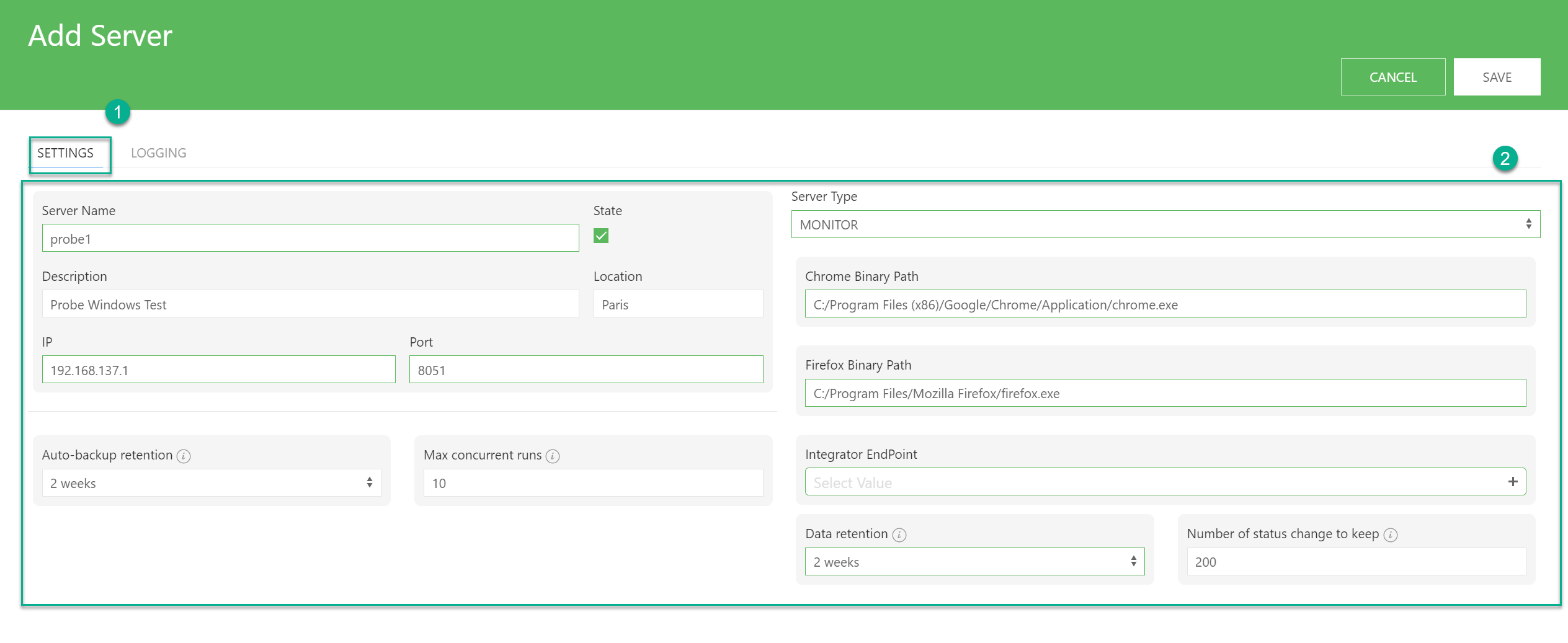
- fill in the logging form, and click save

- The MNS server should appear in the list
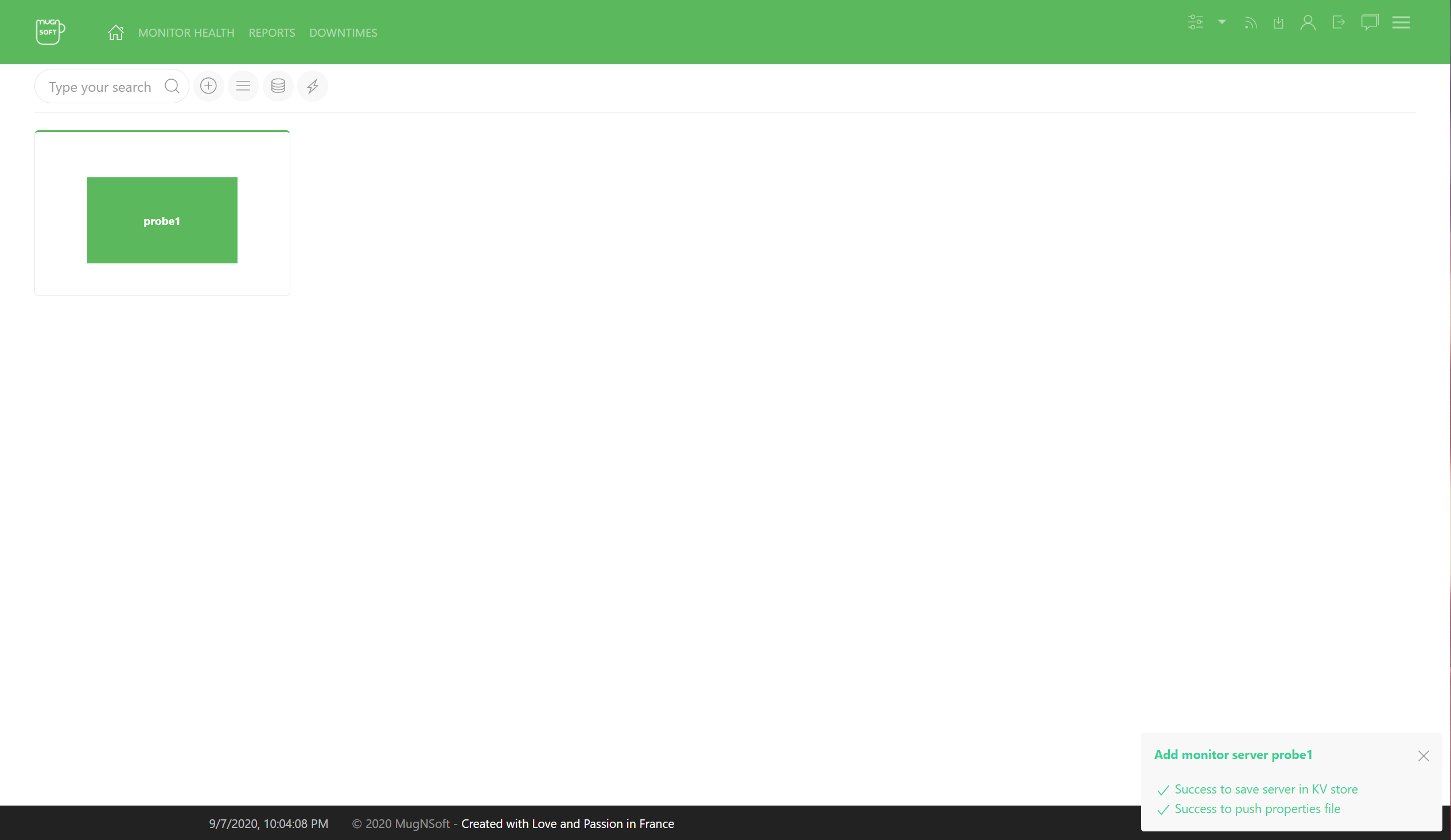
At the right bottom of the page, you should see the below status

Once a MNS server has been defined. Below are the available operations you can peform on this server.
Available operations
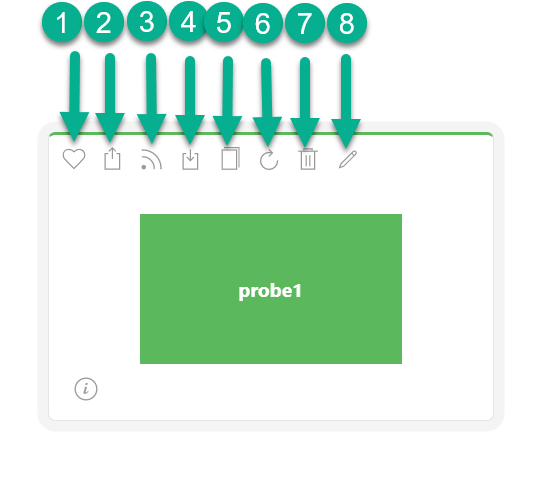
-
Check the server uptime. Go to uptime.
-
Push setting to the server. Go to push settings.
-
Live view the server execution. Go to live view.
-
Download the server’s run files. Go to download run files.
-
Backup the server’s KV store. Go to backup KV store.
-
Reinitialize the server’s KV store. Go to reinitialize KV store.
-
Delete the server. Go to delete server.
-
Edit the server. Go to edit server.
Server uptime
- hover on the server and click on the uptime icon
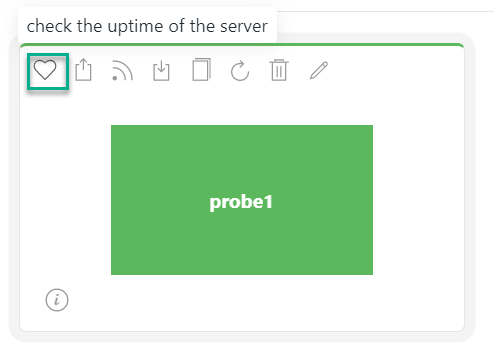
At the right bottom of the page, you should see the below status

Push settings
- hover on the server and click on the push icon
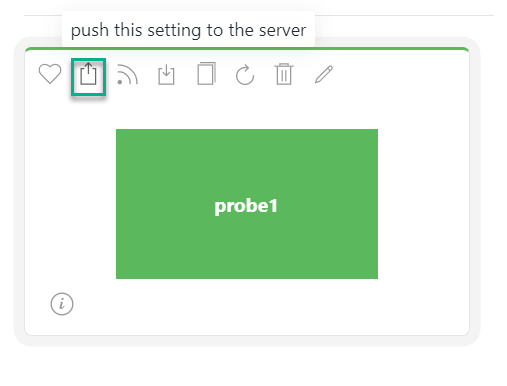
At the right bottom of the page, you should see the below status

Live view
- hover on the server and click on the live view icon
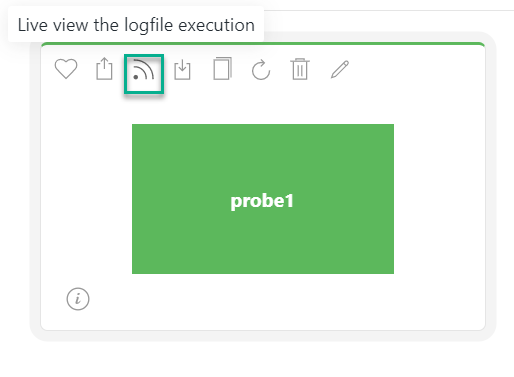
- the live view execution of the server is displayed in the modal windows
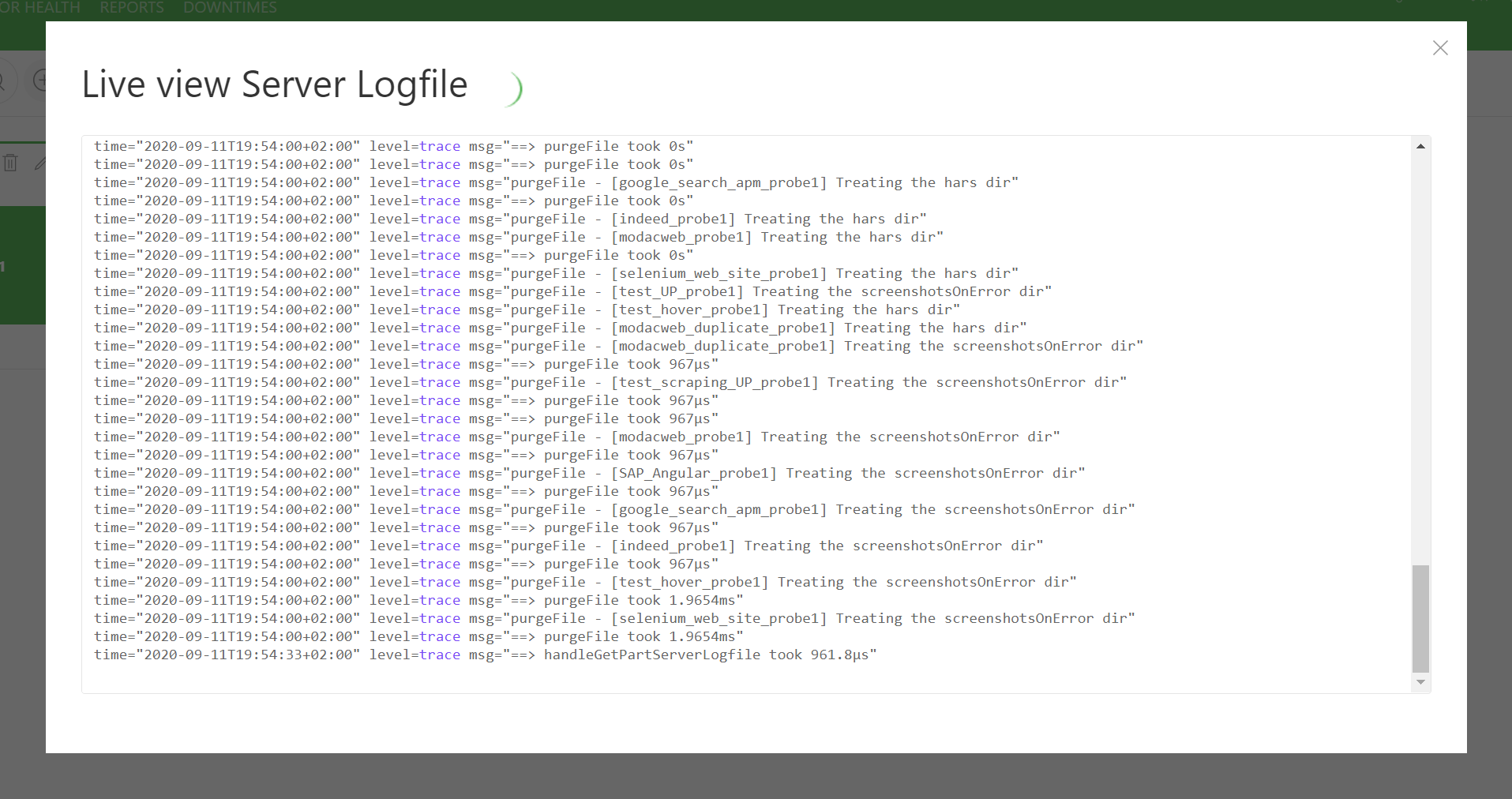
Download run files
- hover on the server and click on the download icon
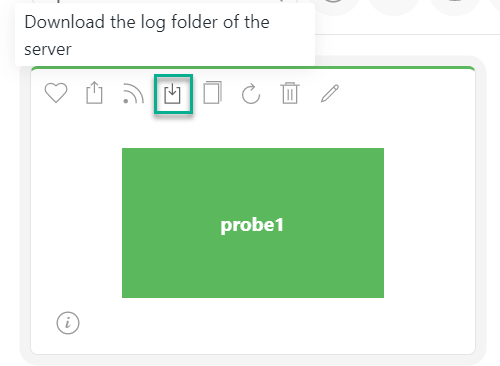
At the bottom right, upon success you should see the below notification:

Backup KV store
- hover on the server and click on the backup icon
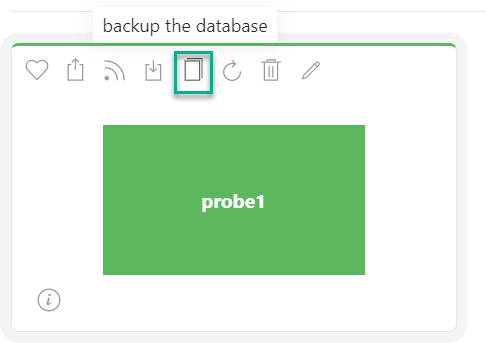
At the bottom right, upon success you should see the below notification:

Reinitialize KV store
- hover on the server and click on the reinitialize icon
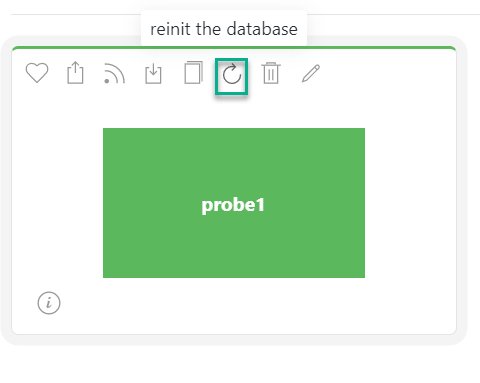
- click on the confirm button
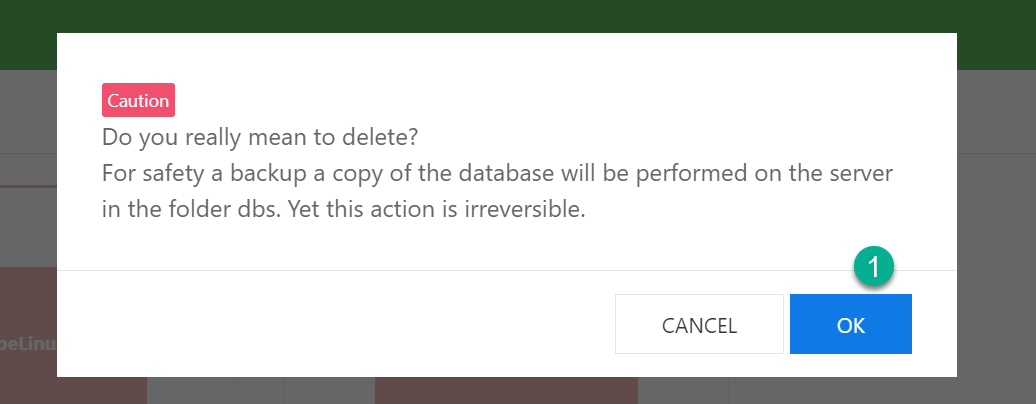
At the bottom right, upon success you should see the below notification:

Delete server
- hover on the server and click on the delete icon
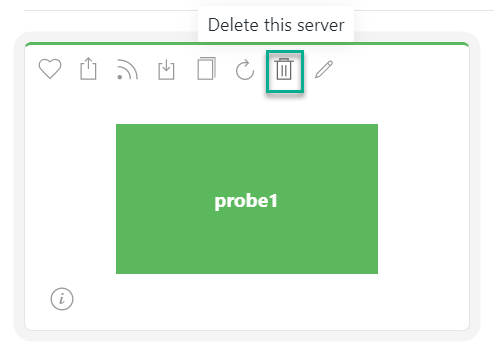
- click on the confirm button
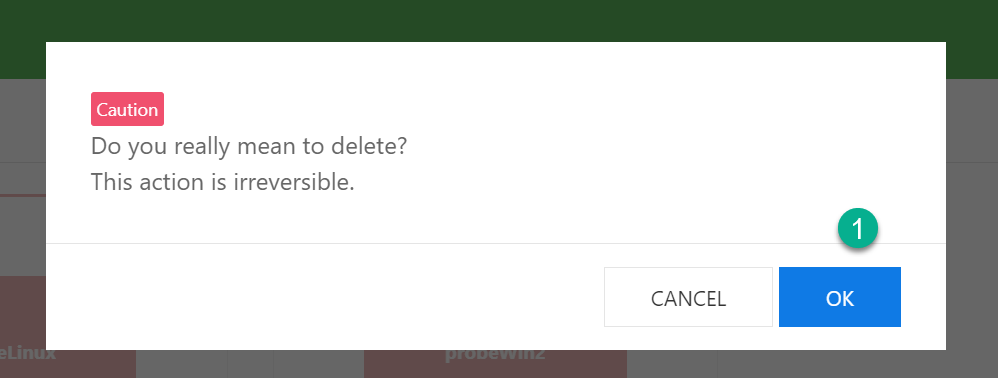
- click on the confirm warning button: depending on whether the server is reachable or not or the server’s KV store contains data or not, you see one of the below warning message:
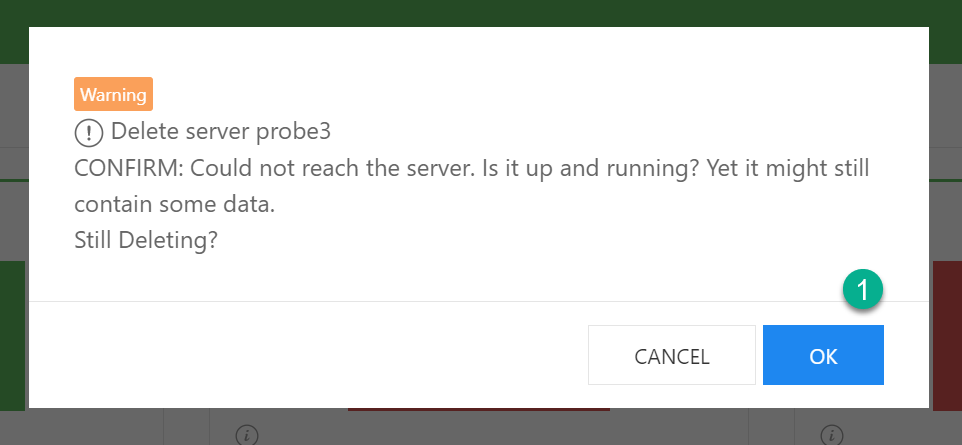
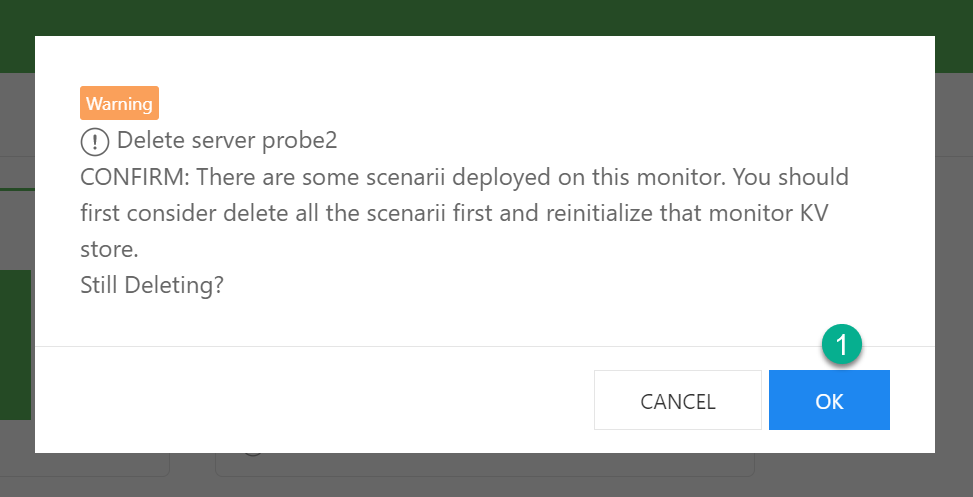
At the bottom right, upon success you should see the below notification:

Edit server
- Click on the pencil icon
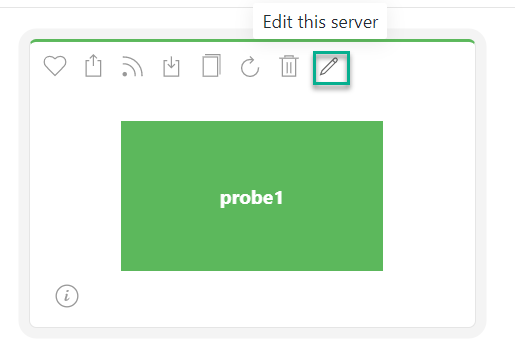
- Edit the servername, state (enabled/disabled), description.
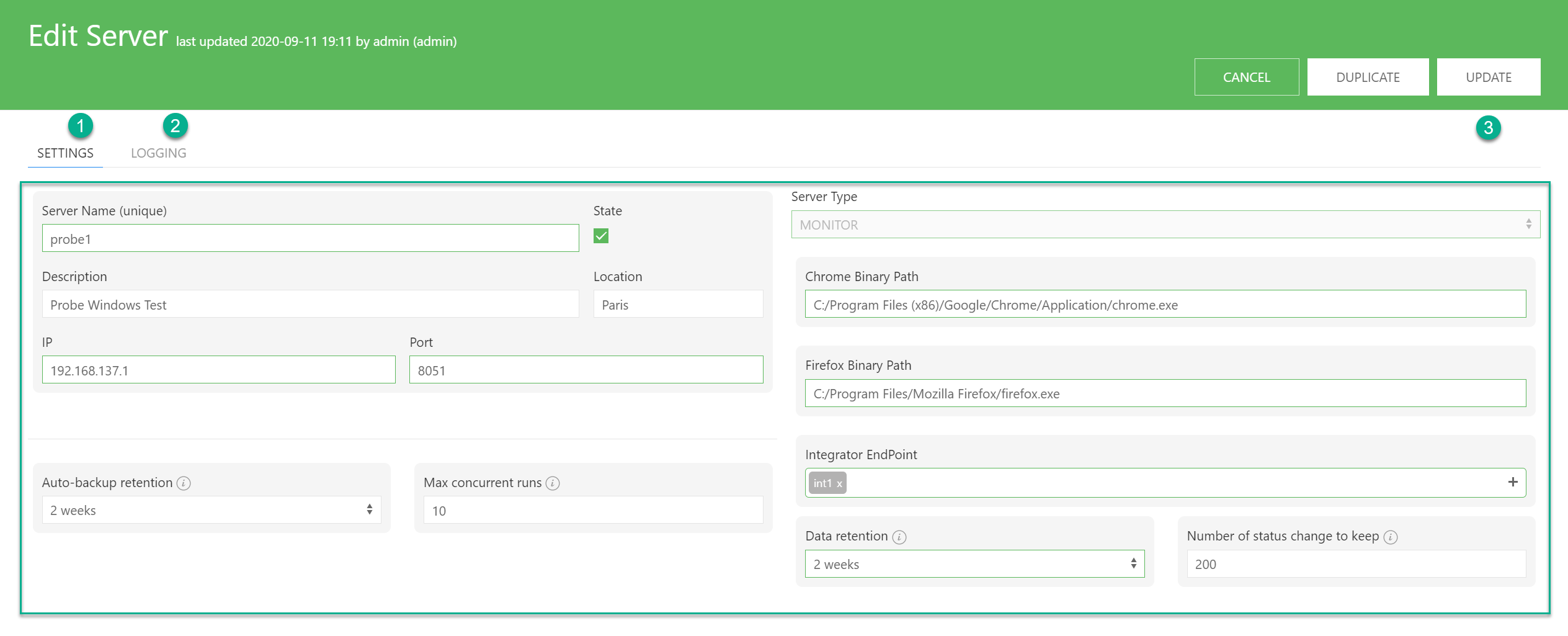
At the bottom right, upon success you should see the below notification:

Filter servers
We can filter servers based on their state (enabled/disabled) or their name.
- Click on the given button to toggle the filter
- Click on any of these value to filter based on the state
- Type in case sensitive pattern (part of the servername) and type enter

- Type in “pro” and type enter
- Servers matching this criteria should appears in the list
